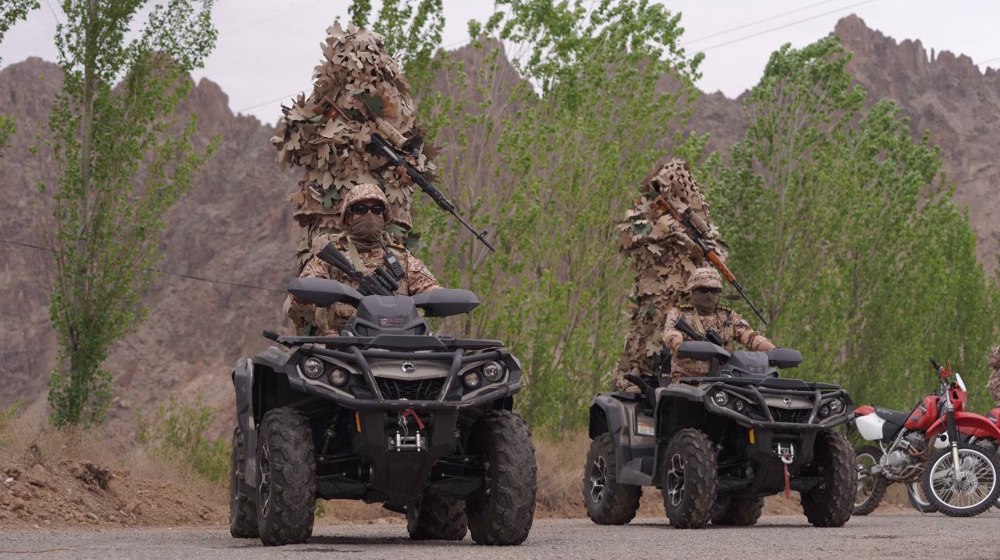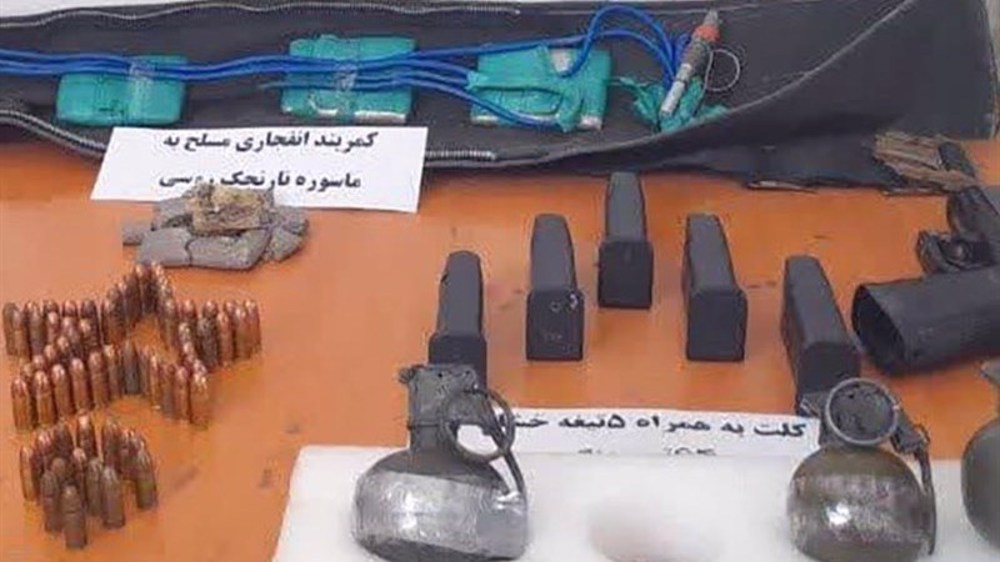Iran unveils surveillance radars, tracking systems
Iran has unveiled domestically-manufactured strategic aerial navigation and tracking systems, including two military surveillance radars.
Iranian Defense Minister Brigadier General Hossein Dehqan said on Saturday that two radar systems, dubbed Me’raj 4 and Matla’ol Fajr 3, two distance measuring equipment (DME) and a radar level measurement system were unveiled in the Iranian city of Shiraz in the southern province of Fars.
He added that Me’raj 4 is a ground-based long-range 3D surveillance radar system which is equipped with state-of-the-art anti-electronic warfare systems.
It is also capable of detecting and tracking 200 targets and has a command control center, he said.
Dehqan added that Matla’ol Fajr 3 is a surveillance radar system with the capability of detecting and identifying two-dimensional targets in a range of 500 kilometers.
The Iranian minister further said DME is a transponder-based radio navigation technology used in civil airports to establish contact between the cockpit and a ground station.
He noted that the Defense Ministry also unveiled a millimeter wave radar system which is used to find the level of liquid surface in storage tanks of oil refineries and petrochemical plants. It has a measurement precision of 1-5 millimeters.
The Iranian defense minister said in August that the Islamic Republic produces every type of radars and is currently exporting the domestically-manufactured equipment to some countries.
“We are producing radars of all families, including short- and long-range radars, and are even exporting them to some countries. We have no limitation to the production of radars,” Dehqan said.
In January, Iran’s Navy successfully tested a new radar system during large-scale military drills south of the country.
The L-band radar system, capable of detecting both aerial and surface threats at the same time, was successfully tested in waters near Konarak Port, southeast Iran.
In October 2015, Iran unveiled a new domestically-built long-range digital radar system, dubbed Fat’h 14 (Conquer 14), which is capable of detecting enemies’ strategic objectives.

The radar system has a range of 600 kilometers and can detect small airborne targets at a high altitude. High agility and swift connection to command and control network are among other features of the semiconductor radar.
The radar system has a range of 600 kilometers and can detect small airborne targets at a high altitude. High agility and swift connection to command and control network are among other features of the semiconductor radar.
Also in October 2015, Iran unveiled a domestically-built 3D search and control radar system, dubbed Qamar, with the capability of tracking over 100 targets within a 450-kilometer radius.
In recent years, Iran has made major breakthroughs in its defense sector and attained self-sufficiency in producing important military equipment and systems.
Iran has also conducted other major military drills to enhance the defense capabilities of its armed forces and to test modern military tactics and state-of-the-art army equipment.
The Islamic Republic maintains that its military might poses no threat to other countries, stating that its defense doctrine is merely based on deterrence.

Iran, Armenia to hold joint military drills to bolster border security, combat terrorism

Iranian intelligence forces dismantle Takfiri terrorist network

‘Cutting-edge’: Iran says Arash-2 suicide drone will wipe out all threats within 2,000km range
Israel's hawkish minister, husband accused of sex abuse by daughter
Iran breaks Germany's monopoly on cancer-treating Rhenium-188
Houthi: Israel has no interest in peace, seeks to obliterate Palestine
VIDEO | Iran, Russia strengthen cultural ties through Isfahan-Kazan sister city pact
VIDEO | Damascus protesters slam Israeli crimes in Gaza
VIDEO | South Korea seeks deal as Trump pauses new tariffs
VIDEO | Israeli forces massacre nearly 40 Palestinians in Alshujaia
China warns Ukraine over 'irresponsible' claim of Chinese soldiers in war







 This makes it easy to access the Press TV website
This makes it easy to access the Press TV website